Philip II of Macedonia: The Unseen Architect of Alexander's Empire
Written on
Chapter 1: The Rise of Philip II
Philip II of Macedonia played a crucial role in the accomplishments of his son, Alexander the Great. His influence was so significant that some speculate Alexander might have been involved in his father's assassination.
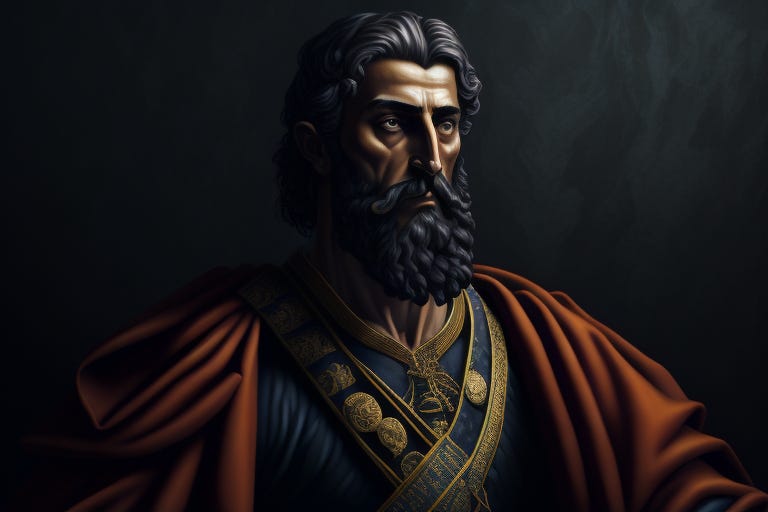
Philip II's Ascendancy
Philip II was the youngest son of King Amyntas III, who ruled during a turbulent period marked by numerous coups and warfare. Over four decades, Macedonia saw 15 rulers, many of whom met untimely ends. As a teenager, Philip was sent to Thebes as a hostage, which would become a transformative experience.
While in Thebes, Philip was treated not as a prisoner, but as a guest. He resided with an aristocrat close to Epaminondas, the famed general who had bested the Spartans at the Battle of Leuctra in 371 BCE. Under Epaminondas's mentorship, Philip absorbed essential military strategies, including the need for a standing army, effective training, and coordination between cavalry and infantry. He witnessed the disciplined maneuvers of the Sacred Band, a formidable elite unit, and compared their precision to the disarray of the Macedonian forces.
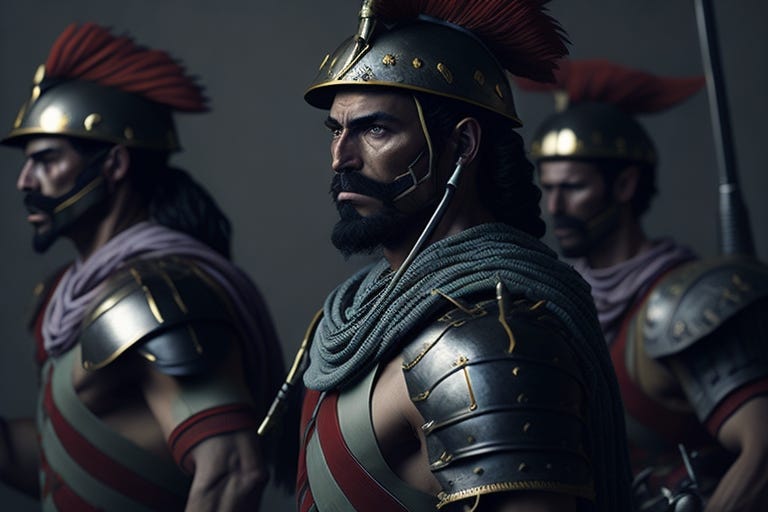
The Lessons of Governance
During his time in Thebes, Philip also gained insight into governance, noting the advantages and pitfalls of democracy. He saw how the frequent elections hindered long-term planning and made political decisions vulnerable to manipulation.
When Philip later set out to conquer Greece, he famously quipped, "No city is impregnable if it has a side door through which an ass laden with gold can slip," a principle that Alexander would also follow.
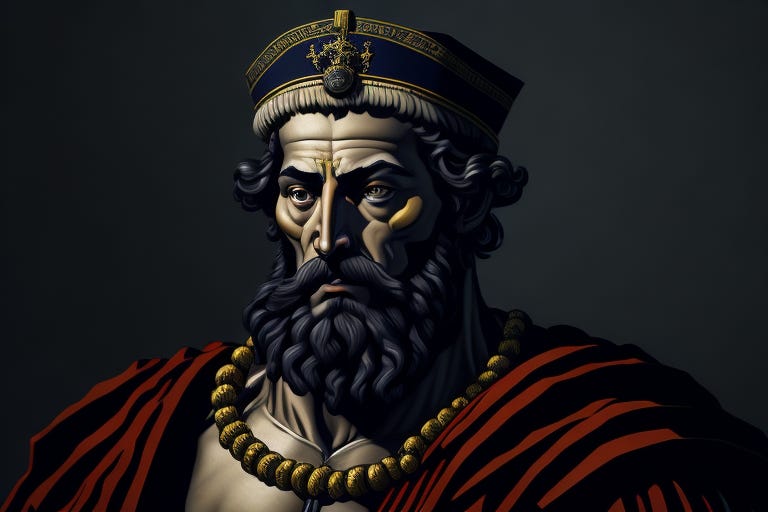
The Path to Power
Upon returning to Macedonia in 365 BCE, Philip was determined to implement what he had learned. Appointed governor of Amphaxitis by his brother, King Perdiccas, he undertook significant military reforms, modernizing the Macedonian army to rival the might of Thebes and Athens.
An opportunity for Philip to seize power arose following a disastrous campaign against the Illyrians, which claimed Perdiccas's life and left the kingdom vulnerable. The assembly appointed Perdiccas's young son, Amyntas IV, as king, while Philip acted as regent, effectively granting him control.
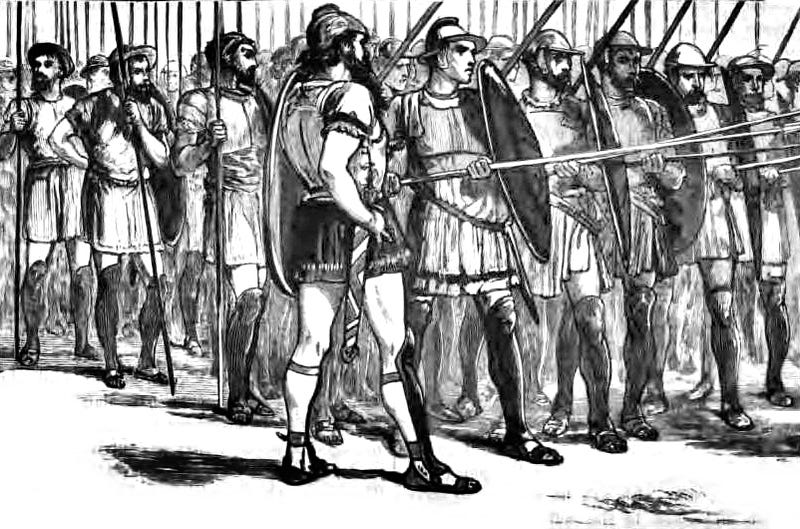
Philip’s Ascendancy
Macedonia was fragmented, with various claimants to the throne and external threats from the Illyrians and Paeonians. Philip adeptly neutralized rival claimants, executed one, exiled two, and bribed another. He also enlisted local tribes to bolster his forces against external threats, ultimately leading to his recognition as king by the army and assembly.
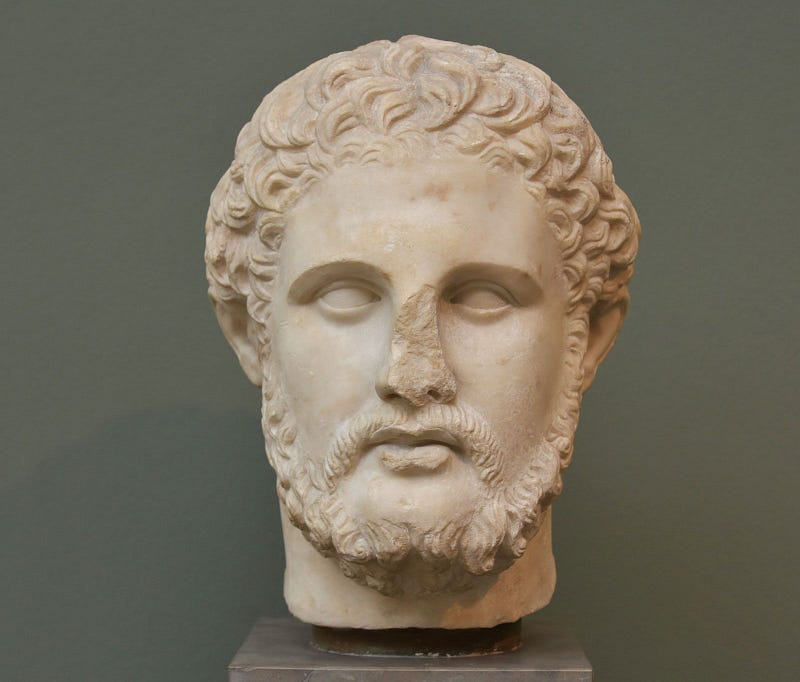
The Expansion of Macedonia
During his reign, Philip expanded Macedonia's territory significantly, incorporating Thrace, the Chalkidiki Peninsula, and Epirus. This unprecedented expansion transformed Macedonia into a formidable power, prompting the squabbling Greek city-states to seek his assistance in resolving their disputes.
Philip took advantage of this situation, strategically placing Macedonian forces in key locations to maintain order and assert dominance over Thessaly. The realization of his growing power alarmed the democratic leaders of Greece, but it was already too late to act.
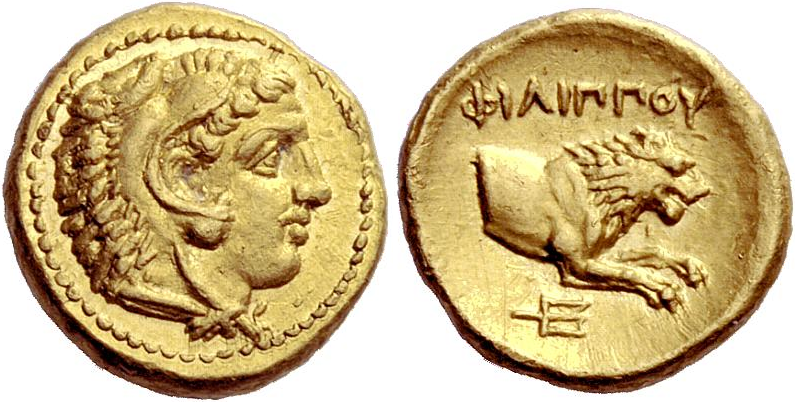
The Conquest of Greece
The coalition of city-states, led by Athens and Thebes, prepared to confront Philip. He sought negotiations, but the orator Demosthenes incited war, precisely what Philip desired to unify and conquer Greece.
In the pivotal Battle of Chaeronea, Philip's forces faced 35,000 Greeks with strategic brilliance. He employed a unique infantry formation, luring the Greeks into a vulnerable position, which led to a decisive Macedonian victory.
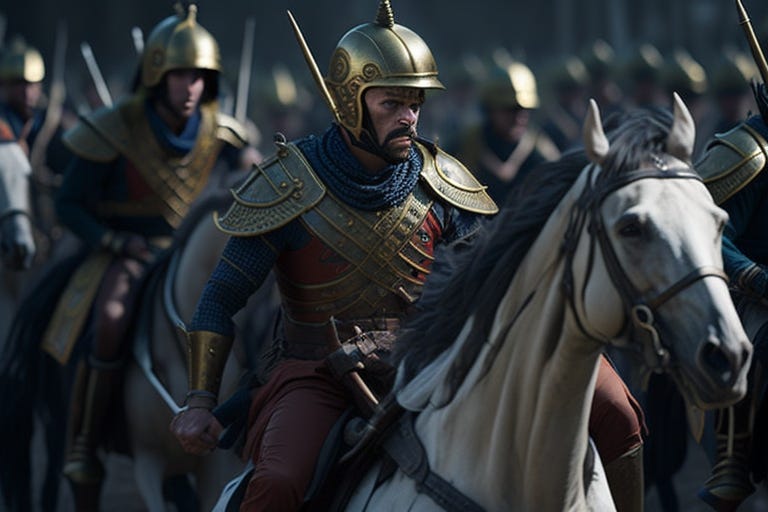
Preparations for War Against Persia
After the battle, Philip wanted to solidify his control and prepare for an invasion of Persia. He sought alliances from the defeated city-states, forming the Corinthian League, which recognized him as the hegemon of Greece. Only Sparta refused to join, prompting Philip to disregard them.
His assassination came during preparations for war, raising questions about the motives behind it.
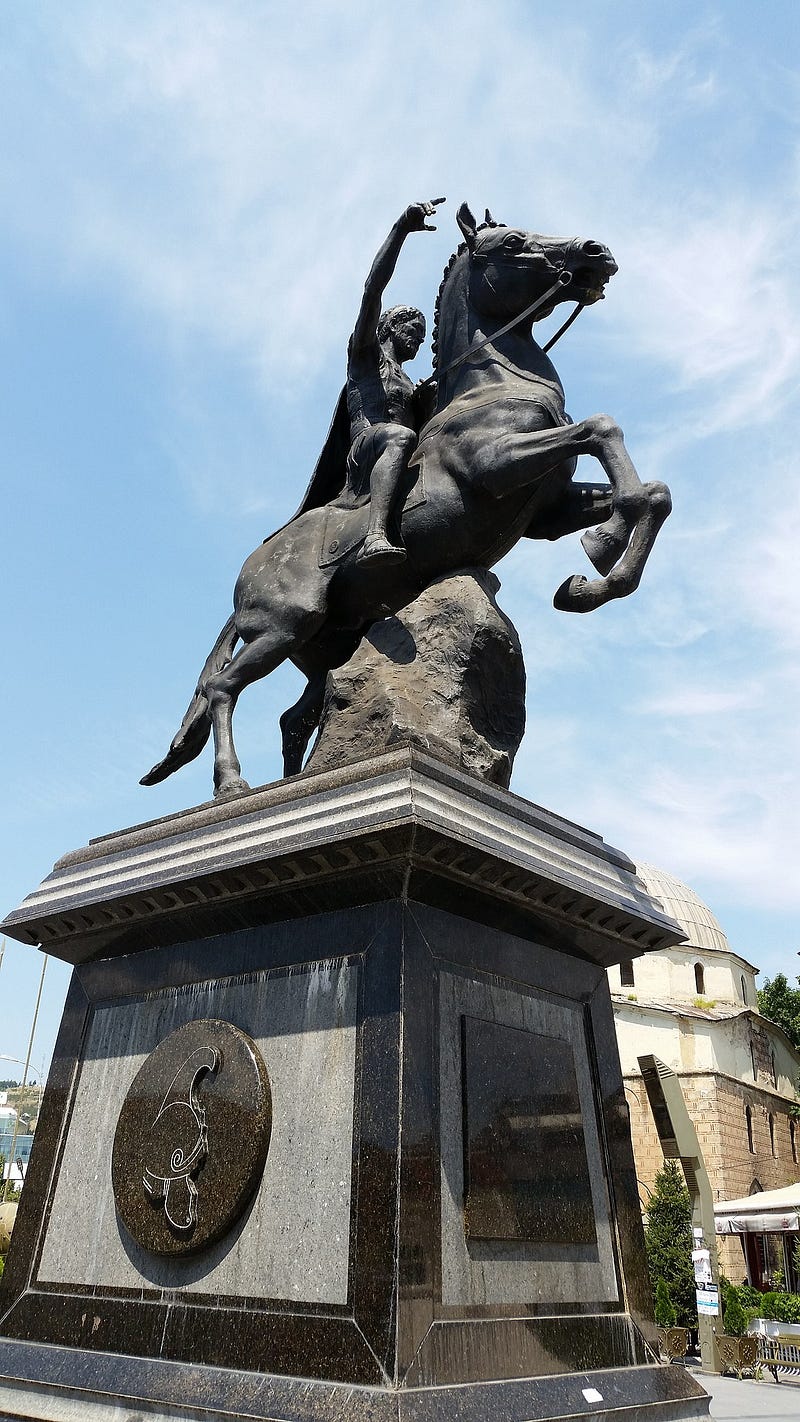
The Circumstances of Philip's Death
The circumstances surrounding Philip's assassination in 336 BCE remain shrouded in intrigue. The assassin, Pausanias, was a member of his personal guard with personal grievances against Philip. During a grand wedding celebration, Pausanias fatally attacked Philip, who died immediately.
Following his death, three young nobles pursued Pausanias and killed him, raising speculation about their connections to Alexander.
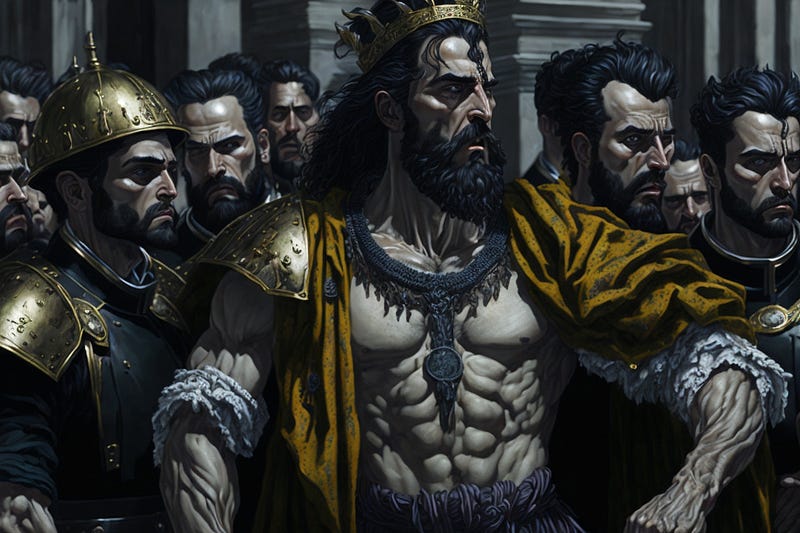
Interesting Insights About Philip II
Philip’s reign was marked by his pragmatic approach, often considering himself a first among equals. He adopted the attire of the aristocracy and emphasized camaraderie with his associates. Despite this humility, he believed he was descended from Heracles and sought to embody a heroic image.
To forge alliances, he married his daughters to vanquished foes, a tactic later adopted by Alexander.
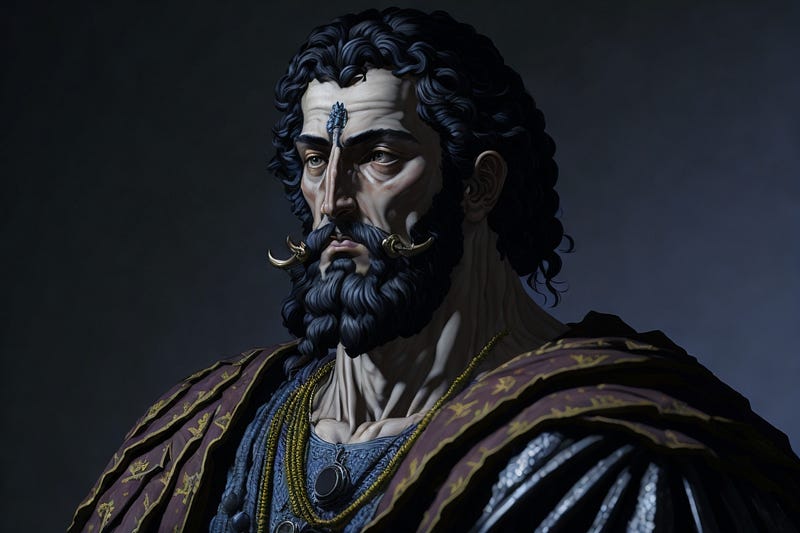
The Enduring Legacy of Philip II
While Alexander III of Macedonia achieved greater fame and conquest, it is clear that his success was built upon the solid foundations laid by Philip II. The Macedonian army and strategies established by Philip were instrumental in Alexander's campaigns, ensuring the kingdom's stability even after Alexander's death.
The aftermath of Alexander's passing saw the fragmentation of his empire, but the kingdom of Macedonia, established by Philip, endured for another century and a half before succumbing to Roman rule.

The Achaemenid Empire: How One of the Greatest Powers of the Ancient World Emerged
From Egypt and Asia Minor to India — the Persian Achaemenid dynasty ruled over this vast expanse between the 6th and…
This video explores how Philip II of Macedonia played a crucial role in the rise of Alexander the Great and the establishment of his empire.
This video delves into Philip II's military strategies and his legacy as the father of Alexander the Great.
Attention all readers!
As content creators on Medium.com, we face minimal compensation for our hard work. If you find value in my articles, please consider supporting me on my “Buy Me a Coffee” page. Your small contributions can make a big difference in fueling my passion for creating quality content. Thank you for your support!